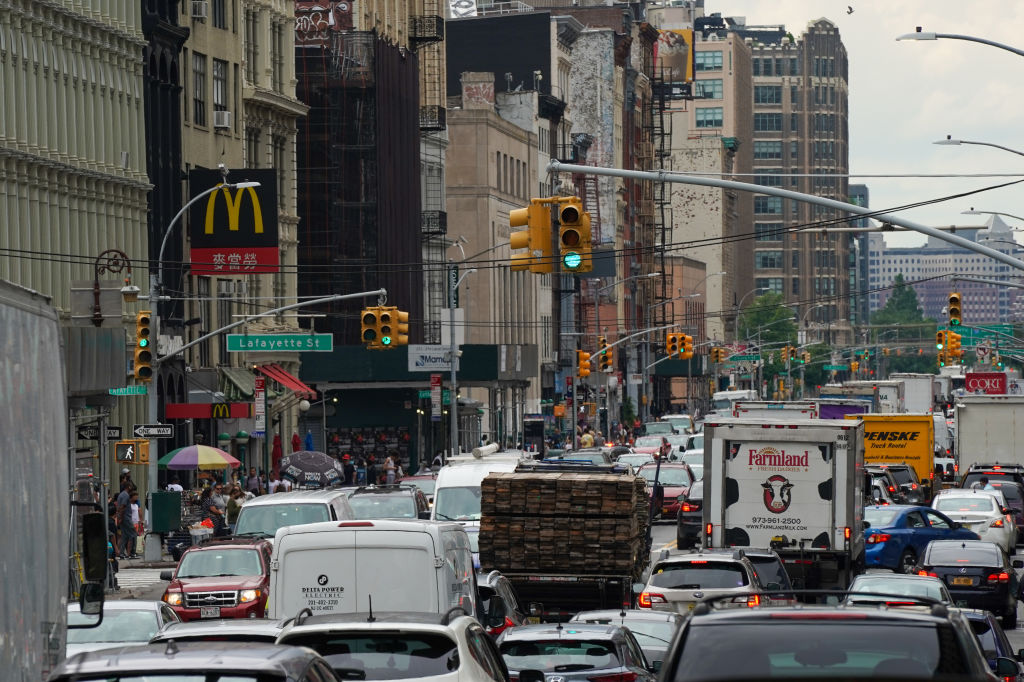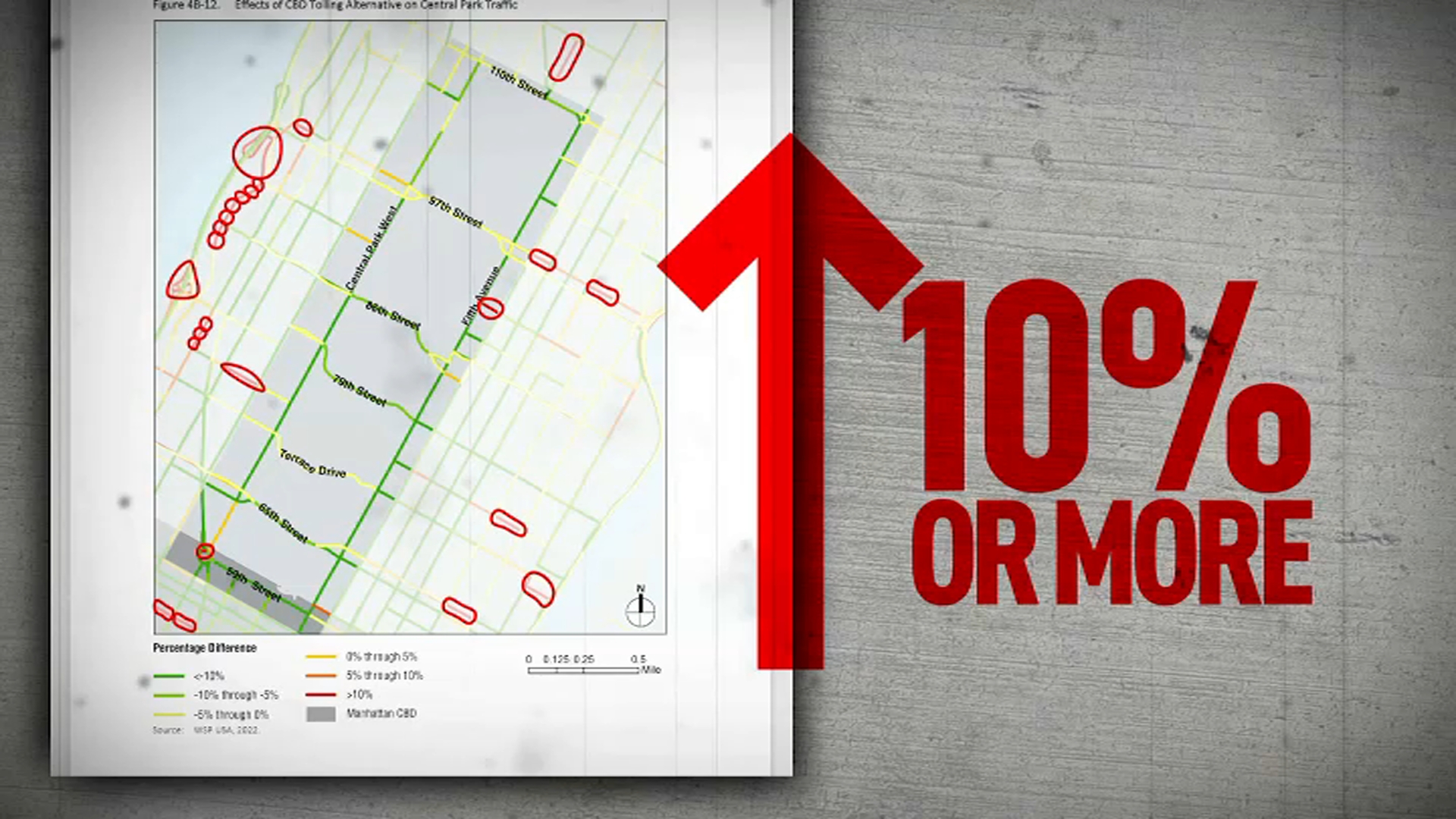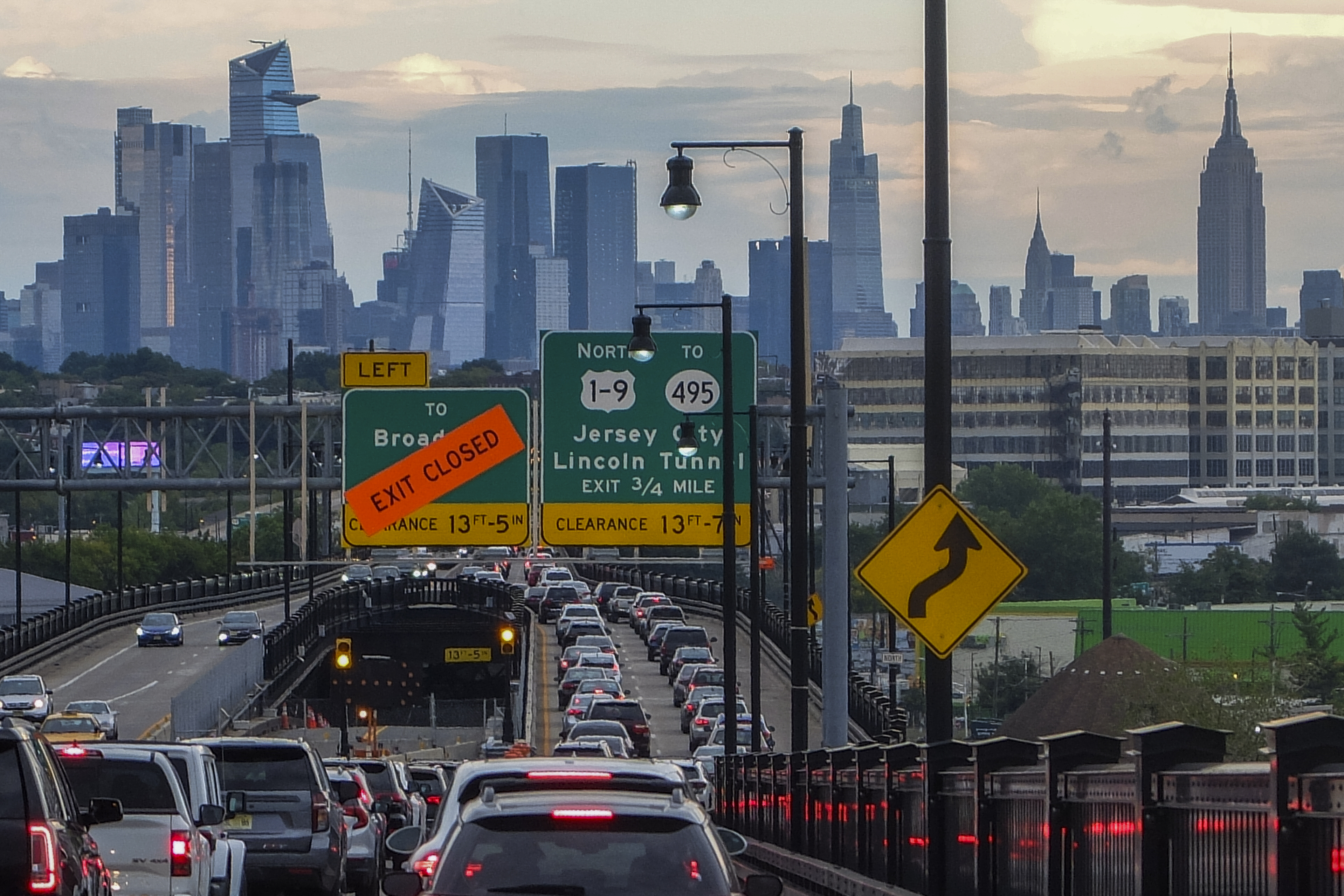What to Know
- The federal government has given the green light on New York's plan to implement the long-debated, highly-anticipated plan to become the first U.S. city to charge motorists an extra fee for entering its most congested area
- Late Friday, the U.S. Department of Transportation sent a letter to transportation officials in Albany and Manhattan, paving the way for the final stretch-run for the pricing plan. That letter says that federal officials have signed off on the assessment submitted last week
- The next step? A 30-day public notice period begins before a final determination on the plan. If no roadblocks pop up between now and then, drivers could start paying more as early as next year
The federal government has given the green light on New York's plan to implement the long-debated, highly-anticipated plan to become the first U.S. city to charge motorists an extra fee for entering its most congested area.
On Friday afternoon, the Federal Highway Administration submitted a "letter of sufficiency" for plan from the Metropolitan Transportation Authority and the city's Department of Transportation, approving of the environmental review.
The MTA’s pricing plan has been discussed for more than a decade now. It’s the plan that could charge drivers, many of whom coming from New Jersey, as much as $23 to enter Manhattan below 60th Street. The pricing plan has yet to be implemented.
Get Tri-state area news and weather forecasts to your inbox. Sign up for NBC New York newsletters.
"We are optimistic the time has arrived for congestion pricing," said MTA Chairman Janno Lieber. "New York is the number one most congested place in the U.S. Ambulances can't get to hospitals, firetrucks to fires. We have to do something."
The practice is commonly referred to as congestion pricing and has been used in cities including London, Singapore and Stockholm. In New York, motorists entering Manhattan below 60th Street would be charged a toll electronically.
The MTA has long argued that congestion pricing is essential to their bottom line and would net them $1 billion annually. Revenue from the plan would be used to back borrowing for capital improvements to the MTA’s subway and bus systems.
"Our shared vision for congestion pricing will reduce traffic, improve air quality in our communities, and raise critical finding for our subways and buses," said city DOT spokesperson Nick Benson. "This approval marks a significant step forward, and we will continue working with our partners at the city, state, and federal level to advance this nation-leading program and deliver a safer, healthier, more equitable city."
New York’s Legislature approved a conceptual plan for congestion pricing in 2019 and it was initially projected to be in place in 2021. But the pandemic and a lack of guidance from federal regulators on the type of environmental review that was required combined to stall the project.
Implementing the plan has been on hold pending a final approval from the Federal Highway Administration, whose job it is to issue a ruling on the environmental assessment. If the agency had not given the green light, further study would have been needed through an environmental impact statement.
Published last August, that statement provided a fairly in-depth look at the workings of the congestion pricing plan, its proposed scenarios and who could be charged under its rules. The seven different plan proposals in the assessment all planned to cap tolling at once per day for personal vehicles, motorcycles and commercial vans; others could be charged more than once.
Late Friday, the U.S. Department of Transportation sent a letter to transportation officials in Albany and Manhattan, paving the way for the final stretch-run for the pricing plan. That letter says that federal officials have signed off on the assessment submitted last week.
The next step? A 30-day public notice period begins before a final determination on the plan. If no roadblocks pop up between now and then, drivers could start paying more as early as next year.
Federal approval could come in June, which would being a 310-day countdown toward starting a toll that would range from $9 to $23 for entering Manhattan south of 60th Street.
The plan has plenty of nay-sayers. A big-time bipartisan pushback effort, backed by lawmakers on both sides of the Hudson River, sought to stop drivers from paying more to get into town.
Some lawmakers in New Jersey have said the plan is unfair because motorists already pay tolls at bridges and tunnels to enter New York, and the money from congestion pricing won't be used to improve public transit in New Jersey. Some motorists paying tolls to enter Manhattan from New Jersey are expected to receive discounts or be exempt.
New Jersey Rep. Josh Gottheimer said that the federal approval doesn't mean the plan is set in stone — or a good idea.
"Not only will it lead to more congestion and more traffic, but it will completely devastate commuters," he said.
Ahead of Friday's approval, a group of New Jersey lawmakers wrote to New York Gov. Kathy Hochul, urging her to suspend implementation of the congestion pricing plan.
“New Jersey commuters already pay a $17 toll when they cross the Holland and Lincoln Tunnels, almost double the toll paid on the bridges connecting Manhattan, Queens, and the Bronx. As a result, this congestion price would uniquely double tax New Jerseyans and result in our constituents paying upwards of $40 just to get to work every day," Representative Mikie Sherrill, and half a dozen other lawmakers, wrote.
"At a time when families across the Northeast are already dealing with rising prices and high costs of living, this added tax on simply getting to work is unacceptable."
New details from a recent MTA financial plan suggest drivers would not see the start of congestion pricing until April 2024, at the earliest.




